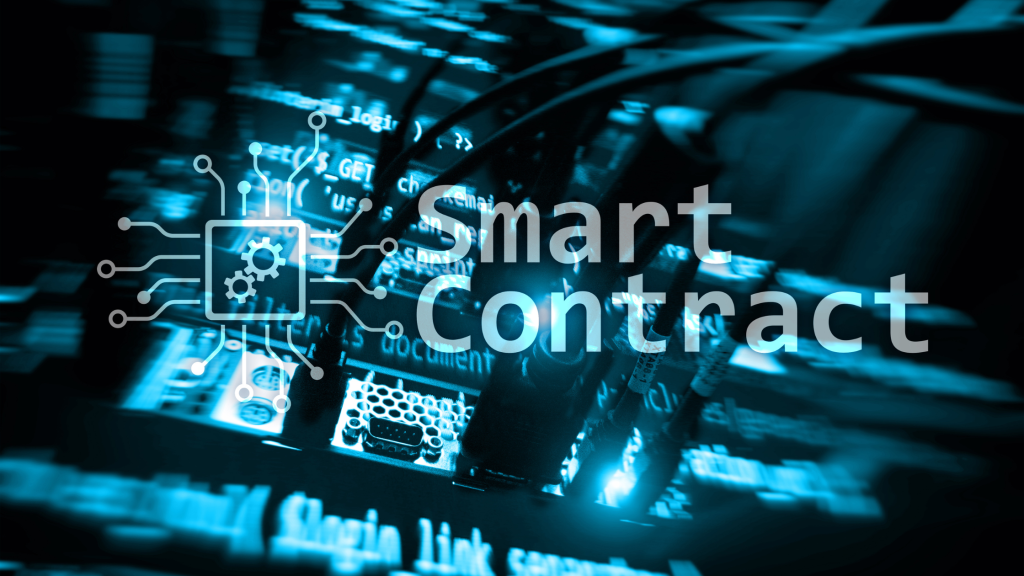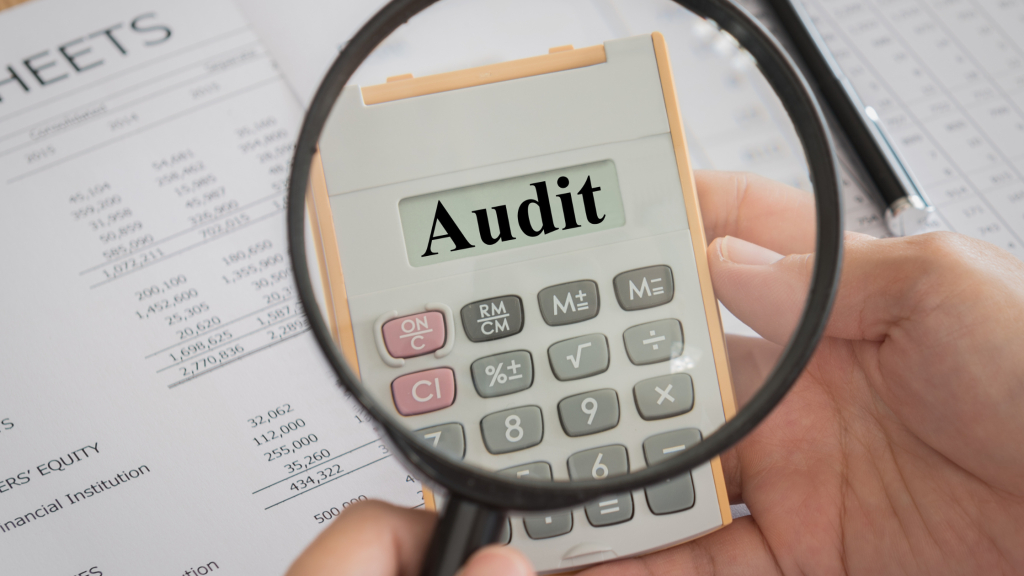KEEP IN TOUCH
Subscribe to our mailing list to get free tips on Data Protection and Cybersecurity updates weekly!



A smart contract audit is a process of thoroughly analyzing and reviewing a smart contract for any vulnerabilities. The auditor will examine the business logic and code of the contract to ensure that there are no exploitable vulnerabilities.
Audits of smart contracts often include a report that is shared with the relevant parties (typically investors and the contract’s developers) and outlines all suggested performance and security enhancements.
Typically, the auditors collaborate closely with the smart contract’s creators to ensure that any potential risks are handled. At this step, the final report will be made available to investors so that they can decide whether or not to invest in the project.

With cryptocurrency scams at an all-time high and the most recent one (at the time of writing) reaching a whopping $614M, it is crucial for everyone working with smart contracts to ensure that they have been properly vetted.
Investors and blockchain engineers are often the two principal groups interested in smart contract audits. It is a significant aspect of the research process for investors (commonly referred to as DYOR).
They want to ensure that the project they will invest in is devoid of any potential vulnerabilities and that the developers have implemented all of the auditors’ recommendations.
It is not unusual for developers to build malevolent smart contracts with the intent of exploiting investors. If you are considering investing in a new cryptocurrency, ensure that it has been extensively audited, and read the audit report to ensure that your money is secure.
For developers, on the other hand, a smart contract audit will assist them in identifying any code issues that they may have overlooked. Before launching the project, an expert auditor will immediately discover potential faults in the business logic and vulnerabilities and assist in their correction.
Also Read: What you need to know about appointing a Data Protection Officer in Singapore

In understanding the working mechanics to audit smart contracts, here are six things you should know:
Auditing smart contracts can be approached in a variety of ways utilizing a variety of technologies, but it is essential to understand how the audit works. Therefore, rigorous audits of smart contracts in blockchain systems are required.
The primary focus of the audits is on design defects, security vulnerabilities, and coding errors. In addition, smart contract auditors frequently provide a detailed audit plan to help you comprehend the process. The optimal method for auditing smart contracts consists of the following best practices.
The most important aspect of auditing smart contracts is reaching an agreement on the smart contracts’ specifications. In the smart contract specification and associated documentation, a project’s architecture, development methods, and design decisions are described in depth. In addition, the specification is frequently described in the project’s README file.
When utilizing whitepapers and docstrings to explain code, a few considerations must be made. However, these do not replace well-documented specifications. Without a specification, auditors would have no idea what the code is intended to perform or how it actually functions. Therefore, an audit of a smart contract must start with the complete project definition.
Auditors would also search for the moment of “code freeze,” which would signify the code’s completion at a specific time. When the code for a smart contract is “frozen,” it must have reached the final draft stage. In addition, the code must have been extensively inspected by the developers for inconsistencies and defects.
The final commit hash would also be included in the project specification to guarantee that developers and auditors have the same understanding of the audited code. To pass the audit, the developers must ensure that no changes will be made after the “code freeze” date.
The auditing of smart contracts enables you to skip straight to the testing phase. Testing is essential to raising the cost of auditing a smart contract. Testing provides access to simple and rapid ways of finding bugs. There are other options available, such as unit tests that focus on single functions and integration tests that evaluate the entire code.
As a result of enhanced testing coverage, the number of issues that can be easily resolved may be reduced. Additionally, testing enables developers to check that a smart contract project has the required functionality and performance. Lastly, auditors of smart contracts may gain additional insight into the planned functioning of the project through the informal documentation produced by testing.
In an audit for testing, executing a test suite is the most basic and appropriate step. When the code passes the large majority of tests that are run on it, it is more difficult to identify obvious defects. Auditors would converse with developers to ascertain whether or not they were aware of failing tests. If there are a significant number of failed tests, the audit process should be suspended, and substantial codebase adjustments should be implemented.
Line coverage is an important factor to consider while conducting audits of smart contracts. Auditors must examine the quantity of code being reviewed by tests to establish the test line coverage. An increase in the number of examined features could lead to the identification of previously unknown flaws and vulnerabilities. Therefore, there is a strong emphasis on ensuring that each and every line of code is tested. For the majority of projects, however, 85 to 90 percent of the contract lines are covered.

After completing the testing phase, you will likely go on to the audit’s analytical phase. In recent years, the demand for secure, intelligent contract codes has increased substantially. Consequently, the demand for bug-detection software is increasing.
Numerous symbolic execution tools often focus on the most prevalent security issues in Solidity smart contracts. Analysis tools can evaluate a program to determine the inputs that activate each program component. The employment of automated analytical tools in smart contract auditing allows for a more efficient audit method.
In addition, they may reduce the need for human auditors and accelerate the auditing process. Thanks to automated analysis, it is simpler to focus on novel and more challenging threats.
Since Solidity’s automated analysis tools are still in the early stages of development, the cost of auditing smart contracts may be significantly lowered. However, this implies that smart contract audits will take a considerable amount of time to reach the required degree of perfection.
In contrast, automated analysis techniques are incapable of comprehending the context in which a piece of code was produced. Consequently, such tools may frequently generate false positives and incorrectly identify the presence of issues. When a vulnerability is detected, you will be required to manually investigate the issue.
Uninitiated users of smart contracts may be uncertain about the contracts’ ability to achieve their objectives. If you’re still confused, then this article on the most common use cases for smart contracts will help.
The use of automated analytical techniques is extremely beneficial for audits of smart contracts. Using them, it is simple to identify common faults in smart contracts. Auditors, on the other hand, struggle to appreciate what creators of smart contracts are attempting to do. As a result, human scrutiny is the only way to discover flaws in smart contract code.
An experienced auditing team evaluates the specifications of a project to ensure that they match the functional requirements. In addition, depending on their observations, the smart contract auditors may present the smart contract project team with concrete suggestions for improvement.
Creating an audit report is the final step in auditing smart contracts. The output of testing, automated analysis, and human evaluation should be a full audit report. The audit team and project team should then meet to discuss the findings of the report. With the aid of this discussion, project managers and developers may have a better understanding of the issues and smart contract vulnerabilities revealed by the audit team.
In summary, Smart Contract Audits are essential to make sure that there will be no vulnerabilities available to bad actors to exploit.
Also Read: Why cybersecurity is important for businesses in Singapore